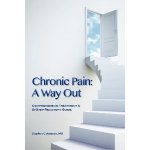David Baxter PhD
Late Founder
Types Of Depression (InteliHealth)
Depression always involves a noticeable change in mood. In fact, many mood disorders include depression as a key part. Sadness is part of the experience, but the word "depression" usually implies a profound gloom that goes beyond ordinary unhappiness. A depressed person may become irritable or stop taking pleasure in everyday activities. People with mood disorders are also likely to have other problems, such as changes in appetite, sleep or energy. (Some medical conditions can also lead to these changes, so it is important that you work with your health-care provider to identify the problem.)
Some mood disorders that include depression as part of the picture include:
o Major Depression
o Dysthymia
o Bipolar Disorder
o Cyclothymia
o Seasonal Affective Disorder
Major Depression
The key feature of major depression is at least one extended period (at least two weeks) of very low mood, called a major depressive episode. In addition to low mood, there are typically many other symptoms, such as insomnia, fatigue, weight loss, poor concentration and feelings of worthlessness or guilt.
Dysthymia
Dysthymia, also called dysthymic disorder, shares the same features of major depression. However, in dysthymia, the low mood and other symptoms are less intense than those in a major depressive episode, but they last longer at least two years in adults and one year in children and teen-agers.
Bipolar Disorder
A person with bipolar disorder has had at least one manic or mixed episode an extended period (at least one week) of high, expansive or elated mood the opposite of major depression. A person in a manic state feels energetic and active, has little need for sleep and may behave recklessly and overoptimistically. A person in a mixed state has symptoms of both a major depressive and a manic episode that occur alternately, or sometimes the symptoms overlap in confusing ways.
Cyclothymia
Just as dysthymia is a less severe version of major depression, cyclothymia, or cyclothymic disorder, is a less severe but often longer lasting version of bipolar disorder. A person with cyclothymia has periods of both high and low mood never as severe as either major depression or mania over a period of at least two years.
Seasonal Affective Disorder
Seasonal affective disorder is characterized by moods that shift with the seasons. The most common pattern is a decrease in mood in the fall or winter (as days get shorter) and an improvement in mood in the spring. However, a few people have the opposite pattern, with depression in the summer.
Depression always involves a noticeable change in mood. In fact, many mood disorders include depression as a key part. Sadness is part of the experience, but the word "depression" usually implies a profound gloom that goes beyond ordinary unhappiness. A depressed person may become irritable or stop taking pleasure in everyday activities. People with mood disorders are also likely to have other problems, such as changes in appetite, sleep or energy. (Some medical conditions can also lead to these changes, so it is important that you work with your health-care provider to identify the problem.)
Some mood disorders that include depression as part of the picture include:
o Major Depression
o Dysthymia
o Bipolar Disorder
o Cyclothymia
o Seasonal Affective Disorder
Major Depression
The key feature of major depression is at least one extended period (at least two weeks) of very low mood, called a major depressive episode. In addition to low mood, there are typically many other symptoms, such as insomnia, fatigue, weight loss, poor concentration and feelings of worthlessness or guilt.
Dysthymia
Dysthymia, also called dysthymic disorder, shares the same features of major depression. However, in dysthymia, the low mood and other symptoms are less intense than those in a major depressive episode, but they last longer at least two years in adults and one year in children and teen-agers.
Bipolar Disorder
A person with bipolar disorder has had at least one manic or mixed episode an extended period (at least one week) of high, expansive or elated mood the opposite of major depression. A person in a manic state feels energetic and active, has little need for sleep and may behave recklessly and overoptimistically. A person in a mixed state has symptoms of both a major depressive and a manic episode that occur alternately, or sometimes the symptoms overlap in confusing ways.
Cyclothymia
Just as dysthymia is a less severe version of major depression, cyclothymia, or cyclothymic disorder, is a less severe but often longer lasting version of bipolar disorder. A person with cyclothymia has periods of both high and low mood never as severe as either major depression or mania over a period of at least two years.
Seasonal Affective Disorder
Seasonal affective disorder is characterized by moods that shift with the seasons. The most common pattern is a decrease in mood in the fall or winter (as days get shorter) and an improvement in mood in the spring. However, a few people have the opposite pattern, with depression in the summer.
Last edited by a moderator:

